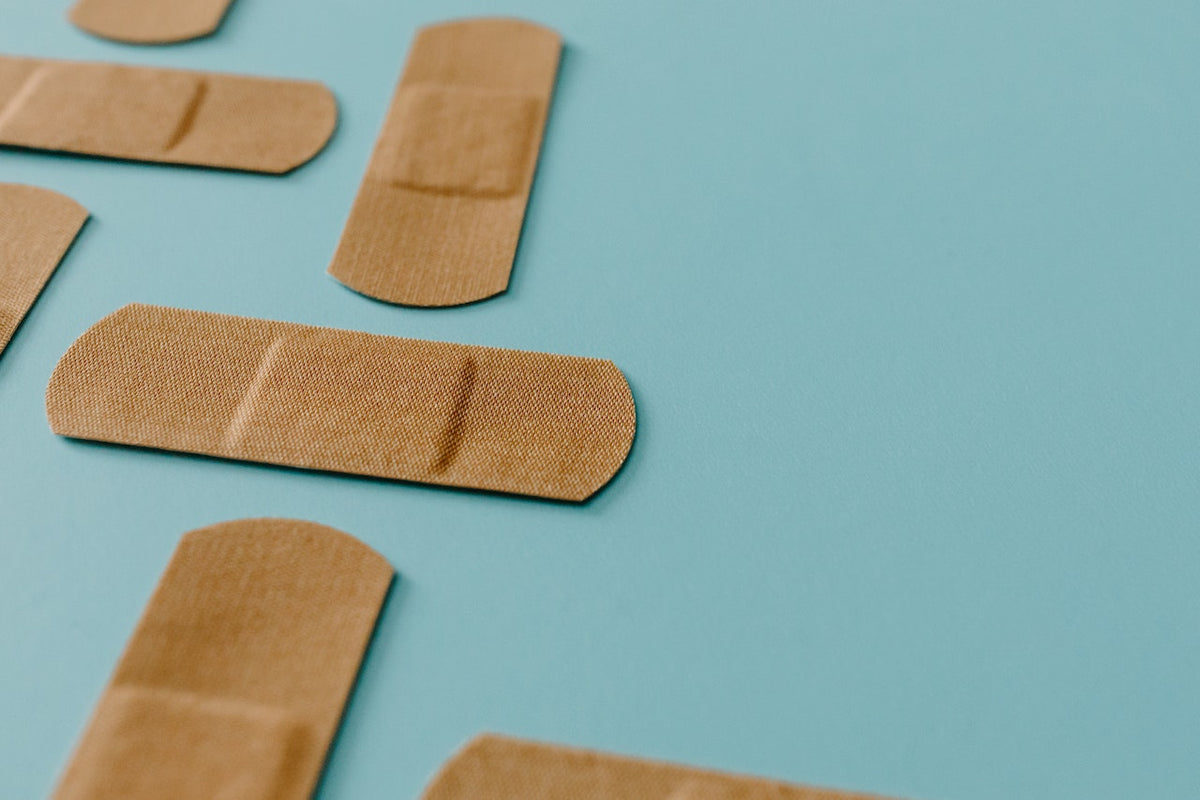
We’ve all experienced that familiar itch during the healing stage of a cut or scrape. Generally, the itching starts as soon as the scab begins to form. Many of us have been told that itching at the wound site is a sign of healing, but is it really?
Read below to learn more about the healing process and if itching is a good sign.
Your skin is a living organ that is connected to thousands of nerve cells. These nerve cells are responsible for your sense of touch and sensitivity to your external environment. Itching is a nerve response that signals skin irritation.
This response is necessary to elicit a response from the body to get rid of the skin irritation by scratching the itch or removing the skin irritant (such as a bug crawling on your arm or washing away an irritating lotion).
So, why do we itch during the wound-healing phase? To understand that you must first understand the wound-healing process.
When you get an injury, your body immediately gets to work at taking care of it. Your body is a complex system of cells that send signals to one another to communicate information. As soon as your cells sense an injury, they work together to get you back in fighting shape.
The healing process takes place over four stages; hemostasis, inflammation, proliferation, and maturation or remodeling. Different cells have different roles to play during each stage. Below is a description of each stage of wound healing.
Hemostasis is the first stage of healing that happens immediately after you’ve received an open wound. Bleeding is necessary to flush debris and pathogens from the open wound. Too much bleeding however is dangerous. The hemostasis phase is the blood clotting phase.
During hemostasis, your body uses collagen to create an enzyme called thrombin. This enzyme creates a fibrin mesh which strengthens your blood platelets until they form a clot. Blood clotting is necessary for stopping blood flow after an injury.
The inflammatory stage begins after your immune system kicks in. Your immune system sends out chemicals to attack any germs or pathogens that might be present at the wound site. The inflammatory stage releases proteins called cytokines and chemicals like histamines, both of which may be responsible for the itching sensation during wound healing. During the inflammatory stage, you may notice swelling and pain.
The proliferation stage begins when the wound begins to close, and the skin starts regrowing. This stage can last anywhere from 2 days to 2 weeks. You may notice the most itchiness during the proliferation phase.
Scientists think this may be because there is so much activity happening at this stage of healing that your skin’s nerve cells become overstimulated. It may be that your brain interprets this stimulation as itchiness.
The maturation/remodeling stage begins as your new skin cells begin to form. Maturation or remodeling can last up to a year or longer after your injury. During this time your new skin cells become more mature and fully heal. Maturation or remodeling often results in a scar.
Itching is a natural part of the wound-healing stage and is nothing to be concerned about. However, itching is, well, uncomfortable. Our body's natural response to itching is to scratch the itch and stop the irritation. But is scratching a healing wound a good idea?
The answer, of course, is no. Scratching your wound at any stage of healing is not recommended. When you scratch, you risk the possibility of damaging the skin’s surface at the wound site, which can slow down healing. You also risk the chance of transferring bacteria from underneath your nails to your open wound, possibly causing an infection.
Rubbing at your wound is also a bad idea as it can reopen your wound and disturb scabs, both of which can delay your healing.
You can’t prevent your healing wound from itching completely, it’s part of the process. However, there are a few ways to reduce itching and provide you with some much-needed relief.
Itching during healing is your body’s natural response to nerve stimuli in the wound. Topical creams and proper wound care may help relieve itching but ultimately, you must be patient for the healing phases to run their course. Talk to your doctor about the best wound care routine for you and consider supplements like WoundVite that may help speed up your recovery.*
*These statements have not been evaluated by the Food and Drug Administration. These products are not intended to diagnose, treat, cure or prevent any disease.